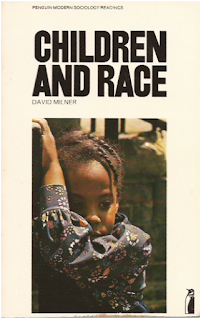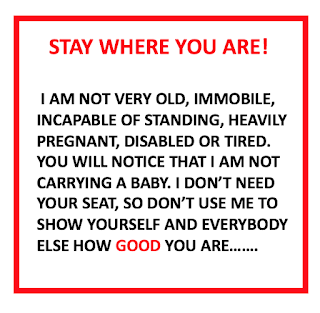The Past has never been more present: retro fashions recur, antiques programmes flood the schedules, genealogy flourishes; good will-hunting is a long-running feature of morning television, and ‘Who do you think you are?’ allows us to be voyeurs while celebrities disinter their family skeletons and jewels. There’s a genuine interest in ancestry; but like a human version of the Antiques Road Show, some of this is just about discovering something valuable in the family tree, a famous forebear or even some slight connection to a current celebrity. Who knows? You might be a relative of Boris Johnson: he seems to be related to everybody else in Europe. These links are a kind of badge of honour. I once remarked on the French-sounding name of an emergency plumber I’d called out. “Oh yes,” he said proudly, “I can trace my family tree right back to Norman the Conqueror”. It took a moment.
But there’s
a neglected dimension: look in the mirror:
No historian, yet you embody decades of experience of
No historian, yet you embody decades of experience of
people, places and events, over a long time. Maybe you
remember the 30s, The
Andrews Sisters, The War, the
birth of the Welfare State, Alec Douglas-Home,
Nobby
Stiles’ tooth deficit, 7/7, Eddie the Eagle, Andrew
Ridgeley, the Austin Allegro, Prince Harry when he was a
laddish twat not a national hero, the star who winked
at you in Regent St, and so on. These are just the easy
markers that punctuate the years. Your experience of them,
your perspective on them, and everything in between
them, are something else, something different – common
yet unique. Autobiography is not just about you, it’s about
the people and events which your life spans.
Ridgeley, the Austin Allegro, Prince Harry when he was a
laddish twat not a national hero, the star who winked
at you in Regent St, and so on. These are just the easy
markers that punctuate the years. Your experience of them,
your perspective on them, and everything in between
them, are something else, something different – common
yet unique. Autobiography is not just about you, it’s about
the people and events which your life spans.
You don’t remember enough to write a book?
Once you begin, you will. You can start anywhere, like your first memory, some
vivid incident - or an early photograph -
and interview yourself. Where were we? Who is that, OK that’s the Lucas
family we met in Shanklin, IOW. Whatever happened to her, I remember the face?
Soon the memories start flowing, and
whether it’s a trickle or a white-water ride, they will lead you through your
entire life.
Some
maintain that we never completely forget anything; it is all there if only we
can retrieve it. This is probably nonsense. How could I possibly recall what my mother
cooked on a particular night in 1963, say? I might if I had a clue or a cue,
and as it happens, I do: it was the night that JFK had been assassinated, which
was a Friday. In which case I have the answer: she cooked Shepherd’s Pie,
because she operated a fixed rota of meals: we could tell the day of the week
by the dinner plate. It’s a one-off but a sound principle of the organisation
of memory and the role of cues. Often it is simply a matter of association: we can use the links
between memories to use one to lead us to others. Once you start it happens automatically.
“But I
can’t type”. You probably can type as fast as you can compose sentences, and
what’s the hurry? Or you can get a speech recognition program for your laptop:
you talk, it types.
“But my
life’s no more interesting than anyone else’s”. Possibly, but you might say that of a skilled
craftsman: no public speaker, yet he talks with love and conviction about his craft,
given the chance, and fascinates his audience. You are the best expert on your
own life, and you probably won’t have a biographer, unless it is you.
“But I’m
not a writer”. Really? Not a professional, but you can form sentences and you
used to make up stories for your children. Anyway, allegedly Shakespeare said
this very thing to his mother when he couldn’t do his English homework: he did
OK, though, didn't he? You don’t have to be a professional, you don’t have to aim that high.
People will
help you edit it: just don’t choose a Grammar Nazi. Maybe it will get
published. Or you may choose not to swim with the man-eating fish of the
publishing world, and self-publish. No disgrace, and at least it locates your
book between two covers, for ever: your gift to your descendants. Forty years
on, it will be priceless and treasured, and a historical document. But most
importantly it will have given you utterly compelling interest and enjoyment:
you will have had the ‘time of your life’. It is a unique delight to be able to
recreate and re-live your days in this way. Trust me.
from www.aboutfess.com
or from Amazon.co.uk (as an ebook)
There is a difference between helpfulness and conspicuous helpfulness. And so I nominate PEOPLE WHO OFFER YOU THEIR SEAT ON THE TUBE to be dispatched to Room 101. Disregarding the mild annoyance that they have mistaken you for an older person, when you are used to mistakes in the opposite direction, it is the helper's blatant assumption of holiness which is so galling. Watch them carefully: first the smile playing around the mouth, verging on the smug, then the imperceptible swivelling of the eyes as they scan the carriage (while not moving the head) to detect the approving acknowledgement of others (look at me, I'm a fucking saint, better than you) as though their afterglow had not already radiated the whole space and all the occupants like virtuous wi-fi. I have prepared this placard to wear round my neck on all future Tube journeys. I think it will do the trick.

If there is a bird with more beautiful plumage than this Ibis, I would be very surprised. It is remarkable that it just gets on with its life and doesn't just stand in front of a mirror all day, feeling very pleased with itself. On the other hand, if you Google Ibis images, there aren't any half as beautiful as this one, so I am wondering if Joanna Swan dyed this one up as a model for her 'bloomin' gorgeous jewellery'...
HILLARY CLINTON:
The American people are tired of liars and people who pretend to be something they are not.
BARACK OBAMA:
I think what you are seeing is a profound recognition on the part of the American people that gays and lesbians and transgender persons are our brothers, our sisters, our children, our cousins, our friends, our co-workers, and that they've got to be treated like every other American. And I think that principle will win out.

In 1975 Penguin published my first book, Children and Race.
It was a minor classic (if only in the sense that it was written
in Ancient Greek and read like some old Morris Minor work-
shop manual). Actually it sold extremely well, but at a royalty
of 7.5p per copy (on a cover price of £1) it would have to have
sold around a million copies to get me into an Aston Martin,
and out of charity shop chic. It didn’t. Ten years later I published
a revised, expanded and updated version entitled Children and
Race: 10 years on (you see what I did there…) which was
distinguished by virtue of the stunning likeness of Garth
Crooks (then a prolific Spurs striker, now a rotund pundit)
on the cover, created by 9 year-old art prodigy, Danny Milner.
Every author dreads seeing a pile of his/her books remaindered on a bookseller’s bargain table. Equally, a copy turning up at boot-sales is quite depressing, though if it’s well-thumbed you can construct a scenario in which it has been passed round a family, or group of friends, each one anxiously waiting their turn to read it, and quarrelling or even fighting breaking out at the suspicion of someone queue-jumping. Well, it’s possible.
The first time I visited the U.S. and found a copy of v.1 in the Harvard
Co-op I nearly wet myself. I felt that I should autograph it and maybe write a
dedication to myself, both for writing it and finding it offered up in an Ivy
League college, like it was a proper book,
not just something I’d written. Sadly, there are aspects of that book which
would now be an embarrassment. It was written before Black Power caught
people’s imagination and so some of the terminology was archaic. That is the
penalty for writing in a rapidly-changing field where you are out of
date faster than yoghourt left out of the fridge.
My young friend Cassius N-G, is working in Battel’s Art Café, a coffee house in Harrow-on-the-Hill. He sent me a photo of the books they provide for their customers. Never thought I’d fetch up next to Sir Alf. Still, it could have been worse, it could have been Mon Chemin by the gifted Librarian, Arsène Wenger.
And resting on top of The Girl with the Pearl Earring, and The Kite Runner. Class. I've finally made it, in a coffee-house kind of way. Yo!
I discovered the Dylan/Ali picture by chance: I had not known that they had ever met, nor that they had such obvious mutual respect and affection. It figures, though: maverick genius recognises maverick genius. You can't have two people called 'The Greatest' when one has already claimed the title, but according to me, they both were. I tried to think of a Dylan song to memorialise this meeting and came up with the following:
On Dylan’s 1964 song ‘I Shall Be Free No 10’, he sang about Ali, who was then still called Cassius Clay. After Clay defeated Sonny Liston that year to become World Heavyweight Champion for the first time, Dylan sang: “I was shadowboxing earlier in the day/I figured I was ready for Cassius Clay”.
Ali appeared on stage at Dylan’s concert in New York in 1975, following the release of Dylan’s song ‘Hurricane’, which protested against boxer Rubin “Hurricane” Carter’s wrongful conviction for murder. Ali phoned Carter in prison on stage during the show, where Ali and Dylan were joined by Carter’s wife and daughter. Carter was eventually released in 1985 after serving 19 years.
Dylan paid tribute to Muhammad Ali, after the boxer died aged 74 on Friday (June 3) following a long battle against Parkinson’s Disease.
Dylan was an amateur boxer as a teenager and praised Ali on his website. Dylan wrote: “If the measure of greatness is to gladden the heart of every human being on the face of the earth, then he truly was the greatest. In every way he was the bravest, the kindest and the most excellent of men."





























